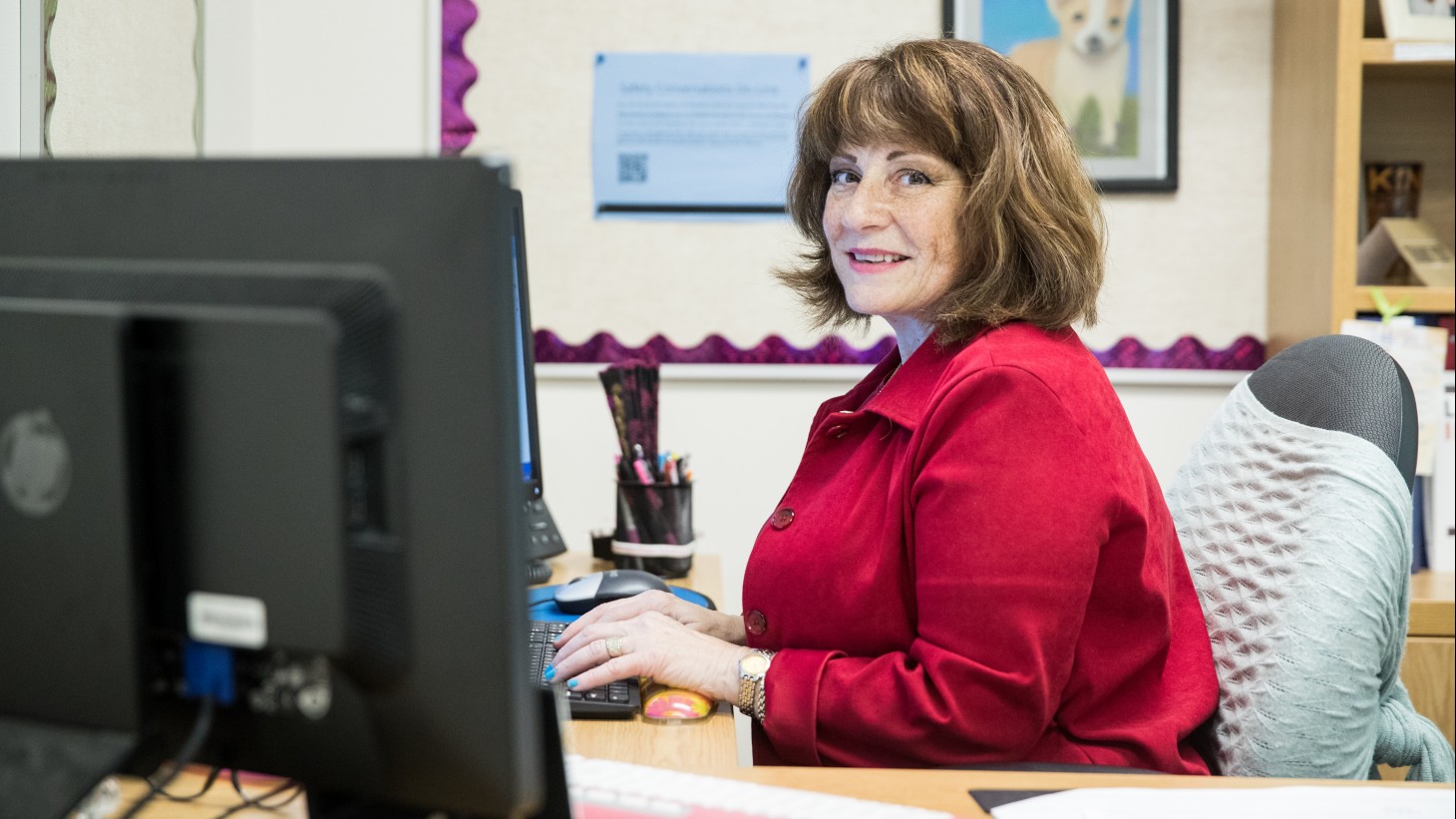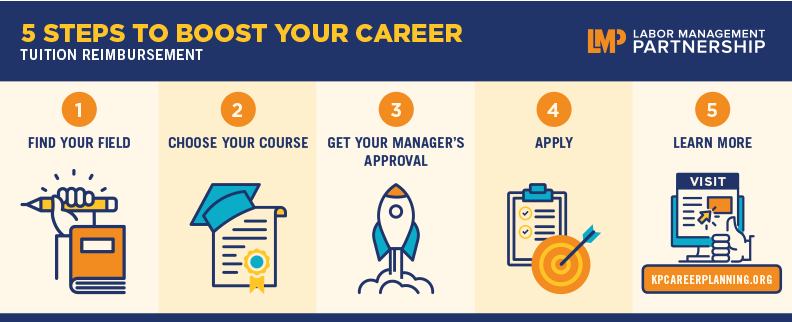
Carol Fiskio, revenue cycle director for Kaiser Permanente's Woodland Hills Medical Center, has used KP's tuition reimbursement benefit to help herself, her staff and the organization be more competitive.
Tuition reimbursement opens doors for career advancement
Carol Fiskio takes pride in helping good employees move on.
As revenue cycle director for Kaiser Permanente’s Woodland Hills Medical Center, Fiskio has seen 3 of her department’s admitting clerks earn college degrees and advance to new positions.
Their formula: a desire to learn, flexible scheduling and a valuable employee benefit. Hers: supporting employees’ lifelong learning to make them, Kaiser Permanente and her department stronger players.
Kaiser Permanente encourages such learning, providing employees up to $3,000 each year for completing courses to continue their education, get a certificate or earn a degree. Tuition reimbursement course applications reached a record 73,224 in 2018, nearly doubling since 2015, when benefits increased for many employees after that year's Labor Management Partnership National Bargaining.
Psyched for psychology
When Olayinka Rahman started as an admitting clerk at Woodland Hills Medical Center in 2007, she had a vision: to become a psychologist. She balanced working and going to school, using tuition reimbursement to earn bachelor’s (California State University, Northridge), master’s (Pepperdine University) and doctoral (Azusa Pacific University) degrees in psychology.
“I don’t think there would be a better place (than Kaiser Permanente) for me to get my degree and continue to work,” Rahman says. “They’re so supportive. I hear about other organizations that aren’t as flexible and don’t have tuition reimbursement.”
After a yearlong internship in Michigan, Rahman returned to Kaiser Permanente. She completed a postdoctoral psychology residency in San Francisco and now works as a psychological assistant in Antioch. She’s preparing for the licensing exams to become a staff psychologist.
Rahman encourages others to continue their education.
“It was definitely challenging but well worth it,” Rahman says. “Talk with your manager, and say, ‘How can we make this work?’ Open communication with management is key.”
Strength in education
Fiskio, who used tuition reimbursement herself to earn an MBA, praised Rahman and her other former direct reports for advancing their careers through education.
“It’s not easy to go to work and to school,” Fiskio says. “That takes real dedication. It’s a benefit to the organization.”

